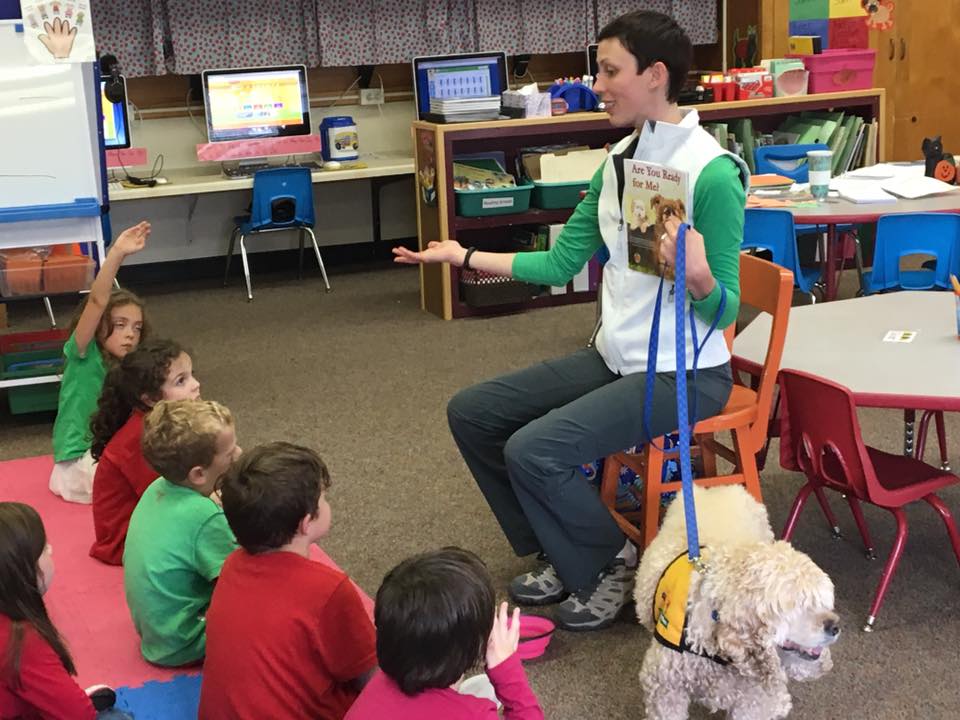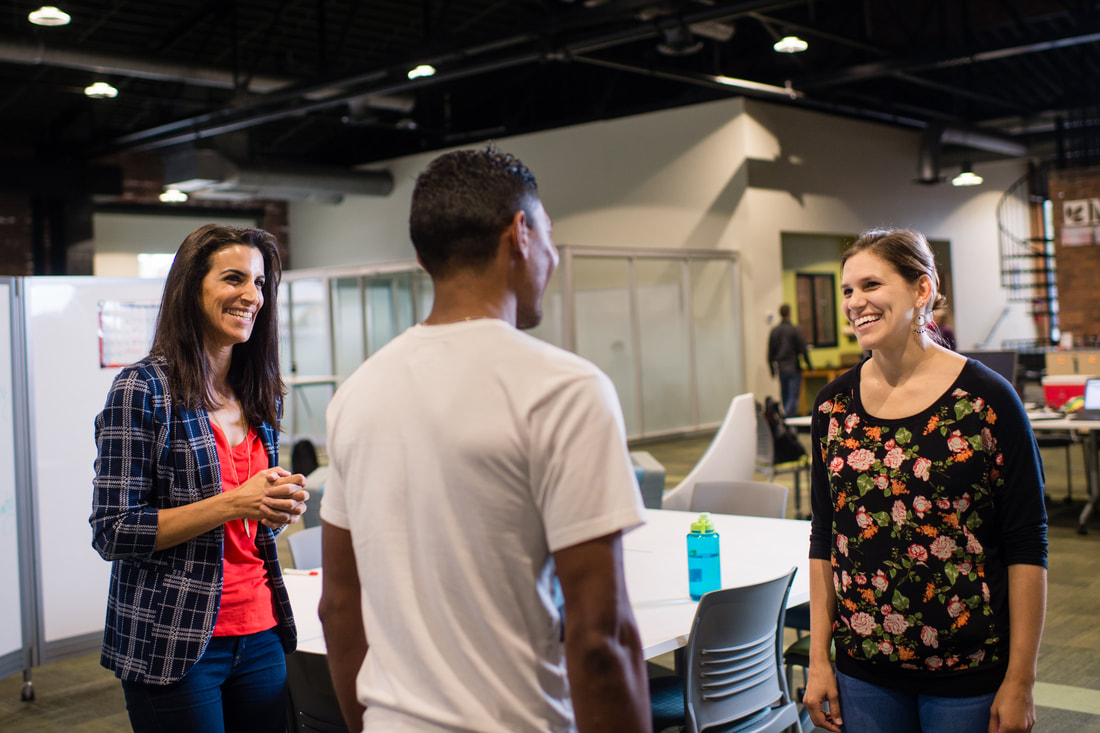My own time studying Theatre Education at Emerson College was a turning point in my theatrical career. After years of teaching drama to young students, acting in local productions, and managing a small all-female theatre company in Charlottesville, VA, I entered the program in 2010, desiring to become a community based teaching artist focused on social and political change. At the same time, I was also considering the path of becoming a high school drama teacher. I went into the program believing my training would help solidify these two interests, and would lead me to my theatrical calling. If my artistic life was a puzzle, studying Theatre Education would give me the ability to put together the puzzle.
While my time at Emerson gave me more pieces to the puzzle that I could have ever imagined, I didn’t leave having constructed the full picture. Throughout the course of my two years in the program, I found myself drawn less to teaching in a traditional classroom and more to my acting roots. I rediscovered a spark of interest in documentary theatre, and through coursework and a capstone project, channeled this spark into my first play, SafeGuard, a solo performance about women of military families. I graduated feeling less certain about where my work post-graduation would lead me, but more curious and passionate than ever about my commitment to using theatre as a catalyst for conversation and for change.
After graduating, I wrestled with how to put together the pieces that I loved into a picture that I wanted to make. I desperately hoped to see a job listing for “Documentary Theatre Artist” or “Part-Time Arts Administration/Part-Time Actor/Part-Time Playwright.” It was easy to want to see my incredibly specific dreams and skills called for in a neat and tidy package and it took me a long time to realize that it wasn’t up to the world to produce a ready-made, perfect fit job for me. It was my job to figure out what my work in the theatrical world was and then work as hard as I could to do it. I couldn’t have done that without my Theatre Education degree.
Being a theatre artist is not confined to using your talents in clearly defined ways. Being an artist means expanding the boundaries of what we believe it means to wield our craft; it means navigating our world and work in a way that is characterized by creativity, imagination, and innovation. It means harnessing the skills we forge as theatremakers in ways we never thought probable or possible. Being an artist begs us to explore a big question: How much can we stretch our theatrical roots and still identify the vital connections between making theatre and using theatre to do other kinds of work in the world?
Two of my colleagues and dear friends from the Theatre Education program at Emerson College are not only asking this question of themselves, they are boldly living it out each day as they chart their own creative course and find their own Theatre Education training to be at the heart of their work in the world.
“I found myself specializing in work with children under five. As a babysitter and nanny, I had spent many years around very young children. I discovered I had a natural rapport with these tiniest of artists.” In Boston, she founded, managed and performed in her own theatre troupe for the very young, The Playtime Players.
In 2013, Stephanie adopted a Puerto Rican rescue dog, Marmalade, with the goal of becoming a therapy dog team. “My work with young children took a fantastic turn when I added a dog into the mix. I discovered the field of humane education, and realized I could use the arts to teach kids about dogs.” Based in Iowa, Stephanie now runs her own business as a KPA-CTP certified dog trainer and Certified Humane Education Specialist. Through Plucky Paws, LLC, she works with young people from infants to middle schoolers, alongside her two therapy dogs, Marmalade and Butterscotch.
"As an actor and as a dog trainer, I must carefully observe and thoughtfully interpret behavior. When I bring out my ‘Benny the Basset Hound’ puppet to teach a class of preschoolers how to pet a dog gently, that’s theatre in action. When I am training with a dog using clean mechanics and economy of movement for precise communication with another species, that’s dance in action. It took years of experimentation and contemplation, but…the pieces of the puzzle came together to give me the opportunity to pursue this goal."
She would encourage those studying theatre now to realize that “Life is complex, and the arts offer us a wonderful gateway to pursue our goals. Creativity emerges daily in ways big and small, directly and indirectly. Be open to the myriad ways your creativity will undoubtedly shift and evolve.”
After earning her Master’s degree in Theatre Education at Emerson, she returned to Utica where she worked training women to get them back into the workforce. “[My boss] gave me free range for the content creation for the training programs. There was acting exercises, creative writing exercises—to get women to own their worth, their value, their confidence. I saw how it was literally changing lives.”
Kristy left after four and a half years at the job to start her own business. After encouraging women to discover meaningful work in their lives, she needed to continue to live this quest herself.
Acting and writing exercises are the core methods she employs in her trainings that are aimed at “Reawakening people’s perspectives on [the belief that] ‘I’m not creative.’” She hopes to help people to recognize their value and their worth by assisting them to “find low risk ways to be seen so that you start being more comfortable being seen”. She believes that encouraging people to take risks through theatre will lead to taking bigger risks in their own work and lives.
"Pay attention to what you value, what you believe in, to find your meaningful work. Keep knowing yourself. You may have an idea of what you want to do, but if you know yourself, you will be flexible enough that if something else comes up, you’ll say ‘Ok. This is in line with who I am. This isn’t exactly what I envisioned, but yeah."
It’s been more than five years since I graduated, and it remains one of the best artistic and personal decisions I have ever made. I left the program with more questions than answers about my role as a theatre artist, which in turn, pushed me to decide what my own creative capacity was and how I would use it. I went from possibly wanting to teach, to focusing on acting, to community based work, back to acting, and now I’m leaning into a combination of all of these things, coupled with continuing to ask myself how I can better serve my own community using theatre as a tool for transformation.
If theatre is a craft, why should we quietly acquiesce to contort our creativity in a such a narrow way? In a profession where we pride ourselves on bending the rules and pushing boundaries of “what is” into “what could be,” I have hope that we will we allow ourselves more and more to color outside the lines of our own visions for what a theatre artist is supposed to do and literally craft our own path.


